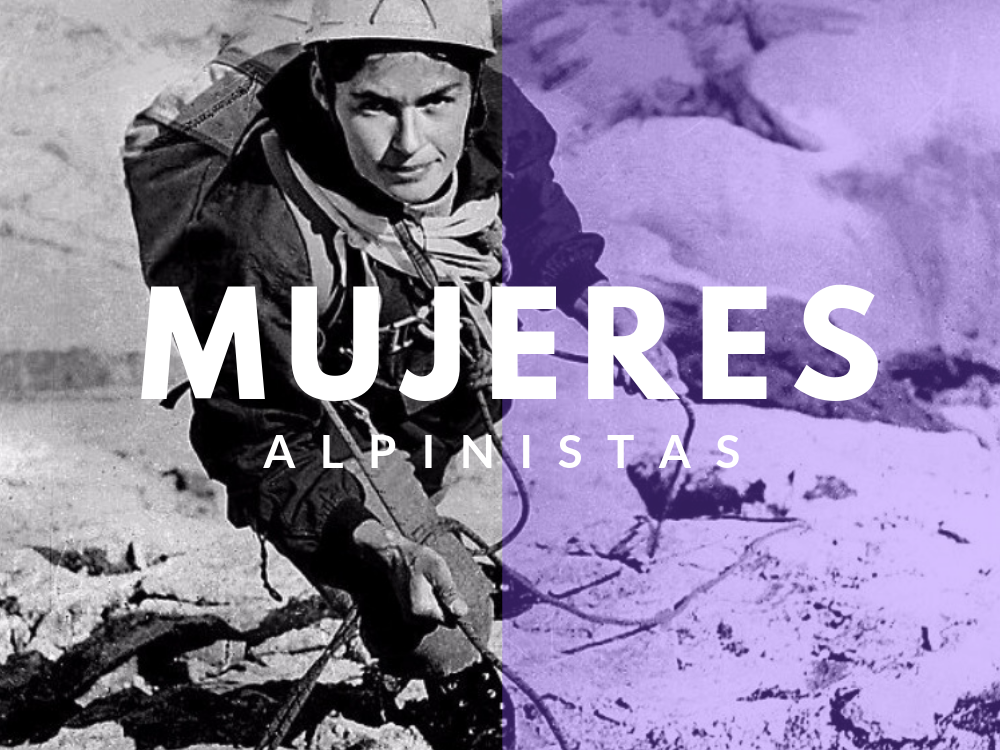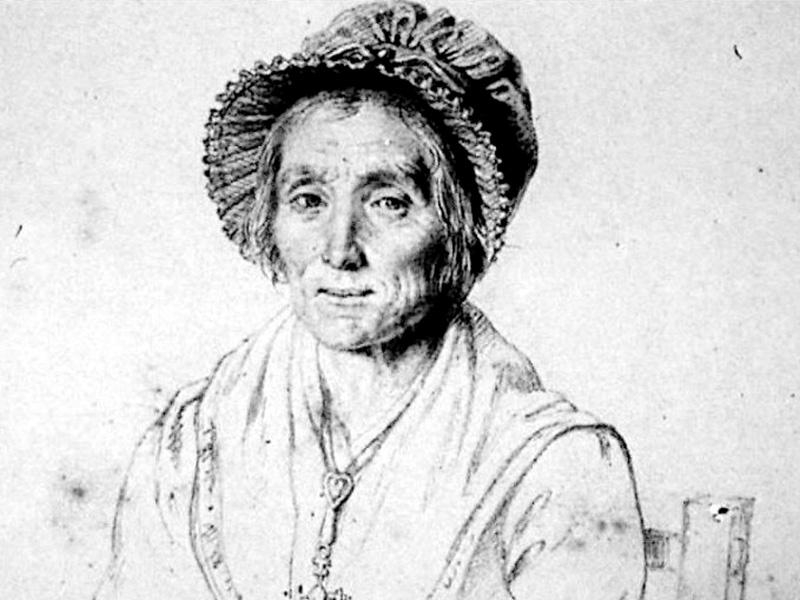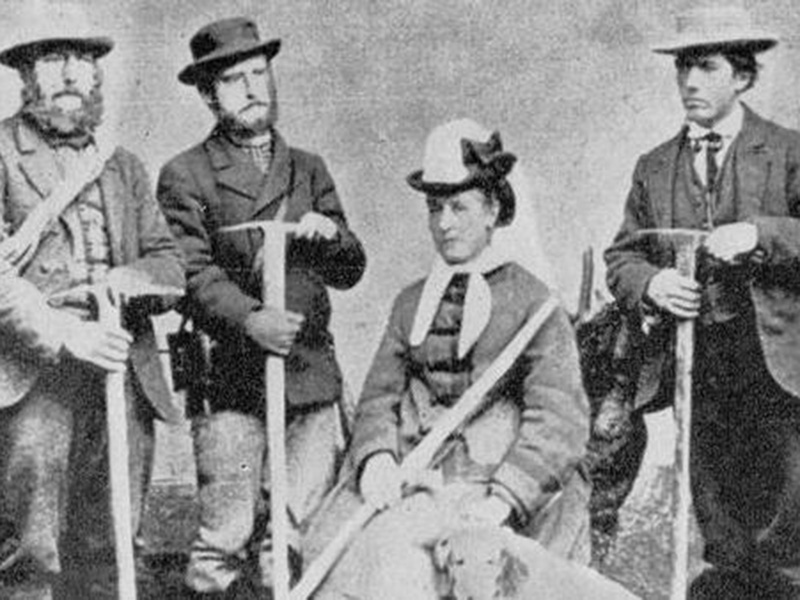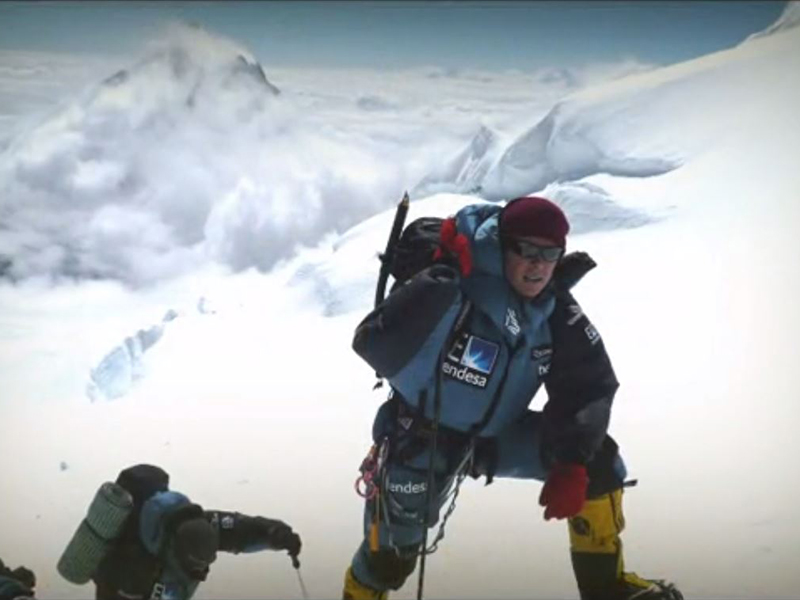Women mountaineers: the story you may not know

If we talk about the history of mountaineering, women have often played an unknown role, in the shadows. That is why with this article we want to highlight and make visible what the best women mountaineers have contributed to this discipline, being aware that this modality was never and at no level exclusively masculine.
The best women mountaineers in history
When we think of women mountaineers, what comes to mind is the image of a modern woman, well prepared, well equipped, recognised, sponsored by big name brands, etc...
However, this image has nothing to do with reality, as this is a very limited and narrow perception of what we understand a 21st century sportswoman to be.
Therefore, and broadening the view of what a woman mountaineer is and has been, there are many images of women that escape our current understanding.
To exemplify and honour the image of so many women mountaineers who have taken this sport to the summit (and never better said), it is only fair that we remember the women who not only fought in the mountains to fulfil their dreams and achieve their sporting goals. Beyond the figures we are talking about below, you may be interested to know this story that we shared on this day a few years ago: "The women of the mountain".Bolivian cholitas who climb mountains".
Now we leave you with six references of women mountaineers, from history to the present day.
Marie Paradis.

Marie Paradis is one of the mountaineers whose records are among the oldest in the world. Born in 1778 in France, she was the first woman to climb Mont Blanc. She was a forerunner of feminism in sport, and also a rare bird taking into account the social prejudices of the 18th century.
Annie Smith Peck.
![Annie Smith Peck / Photo: Gray (Lake Linden, Mich.) [Public Domain].](https://travesiapirenaica.b-cdn.net/wp-content/uploads/2019/03/Annie_Smith_Peck_by-Gray-Lake-Linden-Mich.-Public-domain_600x800.jpg)
This American woman is particularly noteworthy for breaking three barriers: sporting, gender and racial. Born in 1850, she managed to climb the Huascarán mountain in Peru, the peak of which was originally named after her. She was also a renowned suffragette and orator who was able to turn her sporting achievements into a campaign to raise awareness of the social change for which some of the women (not so much the men) of the time were already prepared.
Lucy Walker.

A British mountaineer, she was one of many whose names have not survived despite the fact that she was also one of many who tried to break the gender barrier on the summits. Walker was the first woman to climb the Matterhorn, which was socially much more complicated to understand simply because she was born and died in the 19th century.
Wanda Rutkiewicz.
![Wanda Rutkiewicz / Photo: Seweryn Bidziński [Public Domain].](https://travesiapirenaica.b-cdn.net/wp-content/uploads/2019/03/Wanda_Rutkiewicz_by-Seweryn-Bidziński-Public-domain_600x800.jpg)
This Polish woman is a legend from the time of the Second World War, as an exile, she managed to escape the misfortunes of the war to prove her worth in the mountains and in the field of engineering. She was undoubtedly a visionary and is considered one of the greatest mountaineers of the 20th century.
Junko Tabei.
![Junko Tabei / Photo: Jaan Künnap [CC BY-SA 4.0] Wikimedia Commons](https://travesiapirenaica.b-cdn.net/wp-content/uploads/2019/03/Junko_Tabei_Jaan-Künnap-CC-BY-SA-4.0-Wikimedia-Commons_600x800.jpg)
A Japanese mountaineer born in 1939 and who died in 2016, she was the first woman to reach the summit of Mount Everest in 1975. Thanks to this renowned achievement, Junko Tabei became famous and raised the question of whether women are, in fact, just as capable as men in sporting terms. She is one of the legends of mountaineering and an example of struggle, not only in the mountains, but also for women's rights and to make women's abilities visible.
Edurne Pasaban.

And finally, of course, the Basque mountaineer who has been the first to climb the 14 eight-thousanders in the world. She is therefore also one of those women who will go down in history for having broken the gender barrier. All her ascents took place between 2001 and 2010, which makes her sporting life very intense and also demonstrates her lack of limitations.
Pasaban has also captured all this personal process and universal challenges in this book, which we highly recommend: "Fourteen times eight thousand: A story of self-improvement to overcome the greatest of challenges".
Fastpacking is not about going faster. It's about going lighter.
If you come from classic trekking, this is the next step: learning to move with less weight,
more fluid and enjoying every kilometre more.
Join the Outsiders Newsletter and start discovering what lightness feels like.
